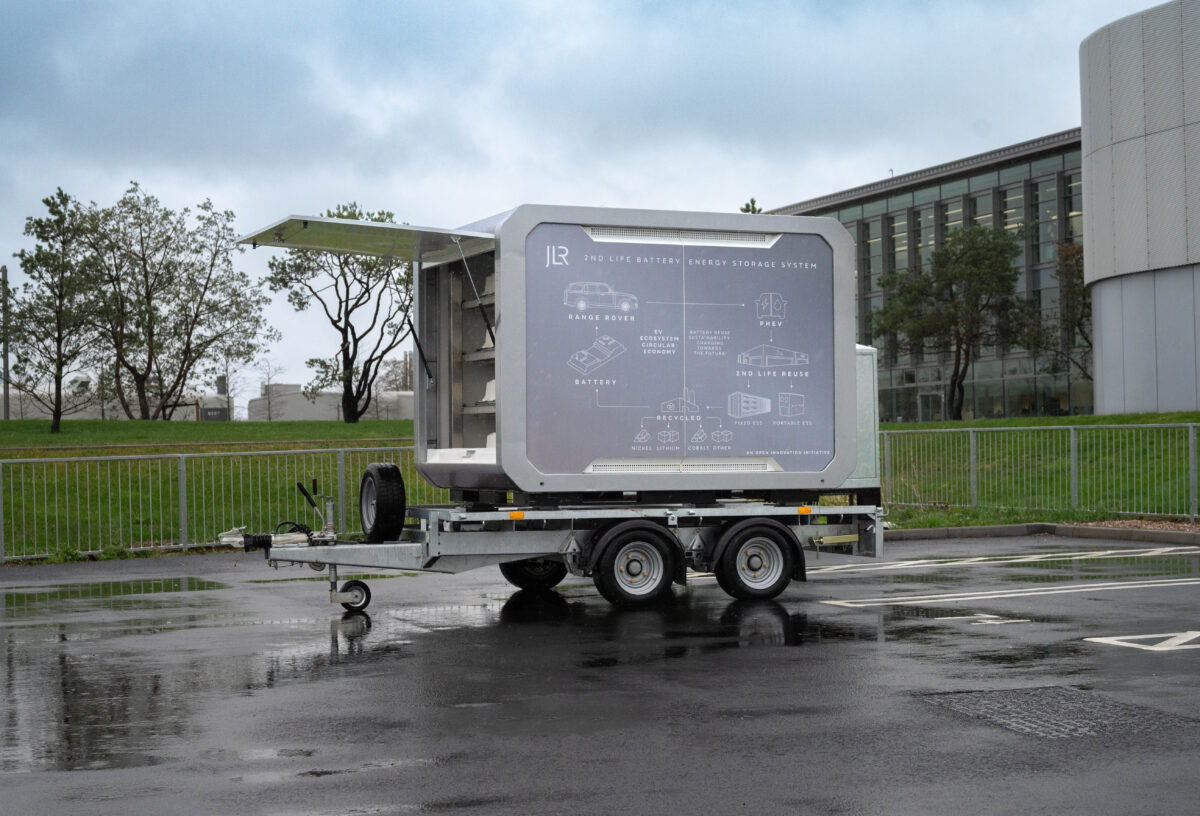UK car manufacturer JLR and energy storage startup Allye Energy have developed a portable BESS. The Allye MAX BESS is the first to use second-life Range Rover battery packs.
Each unit holds seven battery packs that are removed from vehicles and slotted into customized racks. The system is charged by plugging it into any CCS-capable vehicle charger using the same input as JLR’s existing PHEV and BEV product portfolio.
Each BESS can store 270 kWh of energy at full capacity, which is enough to power the average UK household for nearly a month. JLR said each unit is capable of fully recharging up to nine Range Rover PHEV vehicles at once.
Weighing less than 3.5 tons, JLR said the system can be fully portable or stationary when providing energy storage for retailers or JLR sites. The company added that the unit can be used to replace diesel generators when powering off-grid vehicle launches, events and vehicle tests in remote areas.
JLR’s engineering team will become the first to use the new BESS during testing of the new Range Rover Electric. The team will use the system to power more than 1,000 hours of testing ahead of the vehicle’s launch next year, which they estimate will save more than 15,494 kg of CO2 – equivalent to one passenger taking seven round-trip flights between London and New York.
The system will then become commercially available for use outside of JLR.
“This battery innovation and partnership with Allye demonstrates the value we can create from repurposing and reusing batteries, such as from our Range Rover vehicles,” said François Dossa, executive director of strategy and sustainability at JLR. “We are creating new value from a used commodity that would otherwise go directly to recycling, keeping them in use for longer, and providing innovative renewable energy storage solutions.”
JLR said it is investing GBP 15 billion ($18.7 billion) in electrification by building “a comprehensive EV ecosystem,” covering the full lifecycle of EV batteries.
In March, JLR announced plans to generate more than one-quarter of its UK electricity from new onsite and near-site renewable energy projects, as part of its global plan to increase its self-generated energy to 36.4% of its global consumption by 2030.
This content is protected by copyright and may not be reused. If you want to cooperate with us and would like to reuse some of our content, please contact: editors@pv-magazine.com.




By submitting this form you agree to pv magazine using your data for the purposes of publishing your comment.
Your personal data will only be disclosed or otherwise transmitted to third parties for the purposes of spam filtering or if this is necessary for technical maintenance of the website. Any other transfer to third parties will not take place unless this is justified on the basis of applicable data protection regulations or if pv magazine is legally obliged to do so.
You may revoke this consent at any time with effect for the future, in which case your personal data will be deleted immediately. Otherwise, your data will be deleted if pv magazine has processed your request or the purpose of data storage is fulfilled.
Further information on data privacy can be found in our Data Protection Policy.